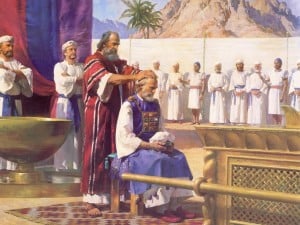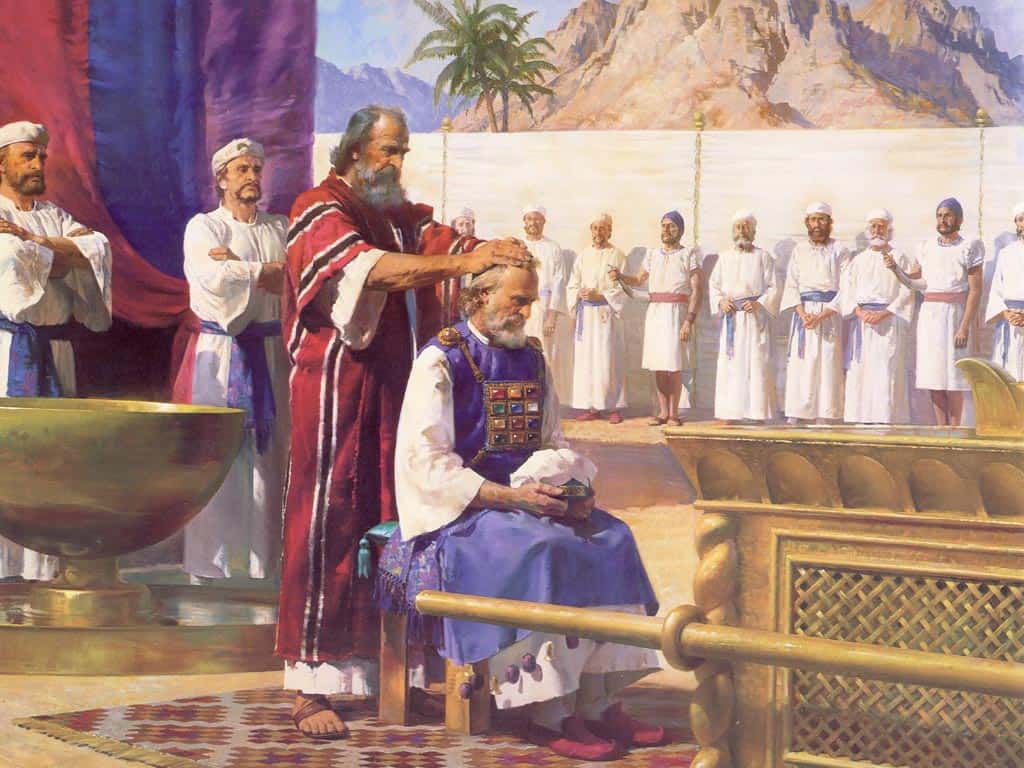Parshat Shemini (Leviticus 9:1-11:47) — What does this week’s Torah portion teach us about the tragic incident involving the two sons of Aaron and the lessons learned from the “Silence of Aaron”?
Shorashim Torah Overview and Study Guide
 On the eighth day following “seven days of inauguration,” Aaron and his sons begin to serve as Kohanim (priests);Aaron his sons, and the entire nation bring various korbanot (offerings).
On the eighth day following “seven days of inauguration,” Aaron and his sons begin to serve as Kohanim (priests);Aaron his sons, and the entire nation bring various korbanot (offerings).
Q) Why is it important for the torah to tell us that it was on the eighth day? Is that not obvious from the fact that we know that Aaron had finished his “seven days of inauguration?”
They do so just as it commanded by Moshe.
Q) Why does the Torah tell us that again and again and what deep significance do these words carry in this torah portion?
Aaron “raises his hands” and he and Moshe bless the nation.
Q) What is the significance of “raising his hands? Why not just say Aaron blessed the people?
A fire issues forth from G-d to consume the offerings on the Altar and the Divine Presence comes to dwell in the Sanctuary.
Aaron’s two elder sons, Nadav and Avihu, offer a “strange fire before G-d, which He commanded them not” and die before G-d.
Q) Was it out of love or arrogance? Can we get a hint from the names of these two sons of Aaron?
Aaron remains silent in spite his tragedy.
Q) What is the lesson of such a silence?
Moshe comforts Aaron, who grieves in silence. Moshe directs the kohanim as to their behavior during the mourning period, but also warns them that they must not drink intoxicating beverages before serving in the Tabernacle.
Q) What is the importance of such a law at this time and how does that remedy the breaches created by Nadav and Avihu?
G-d commands the kosher laws, identifying the animal species permissible and forbidden for consumption. Land animals may be eaten only if they have split hooves and also chew their cud; fish must have fins and scales; a list of non-kosher birds is given, and a list of kosher insects (four types of locusts).
Q) Why does this list come here in the portion? Is it related to the Tabernacle or to the incident with Nadav and Avihu?
Then the people are instructed regarding the redemptive power of the MIKVEH or ritual pool and they are told that they must learn to use the power of “separation” in order to become holy…because G-d is holy.
Q) What can we learn of the Mikveh that is inherent in the hebrew name of such a pool?
Q) Finally what is added to our understanding about holiness when we are told to be holy because ‘ G-d is Holy”
Listen to this week’s Podcast:
